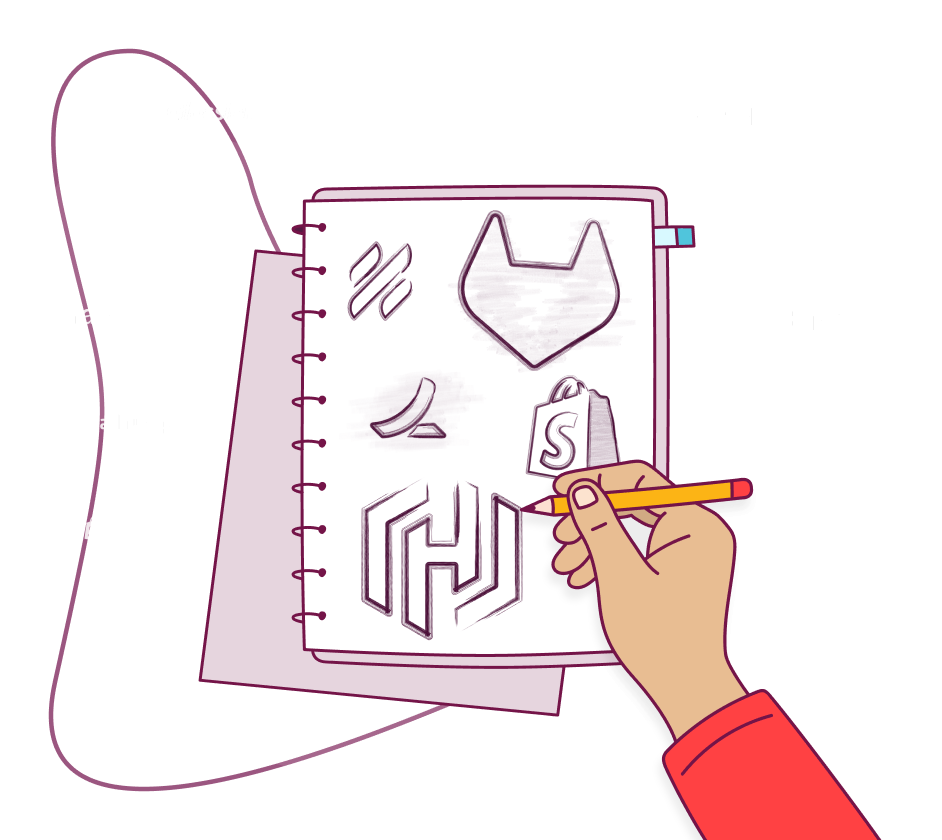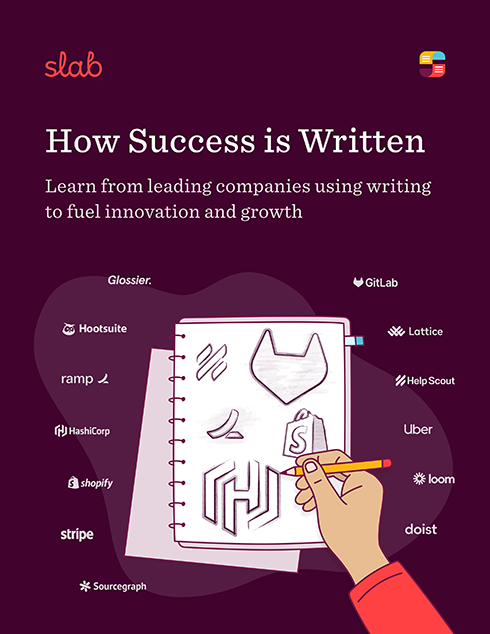How Refine Labs rewrote the book on culture
Why Refine Labs ditched the traditional employee handbook to address the challenges of scaling culture as they grow
When Megan Bowen (COO) joined Refine Labs in 2020, she knew she was in for something different. CEO Chris Walker founded the company in 2019 with a goal of creating a team that would be free from the “hamster wheel” style of work that most marketing companies traditionally rely on. A different philosophy also meant a different company culture. By giving their employees the freedom to experiment with new strategies and the trust to get the job done, Bowen and Walker saw those goals come to life.
The path to establishing values of trust and empowerment had an unexpected bonus along the way: It fostered a thriving culture of writing. This is the story of how Refine Labs rewrote the rules of how creative teams treat each other, from their first page to their next chapter.
Small company, manageable culture
In the early days of the company, Bowen’s work was, unsurprisingly, varied. She managed everything from customers to service deliveries. Unlike most companies in the pre-pandemic world, Refine labs was already remote-first.
“Chris realized early in his career that he was much more effective when he had some quiet time and space to focus on deep work,” explains Bowen. “As he started hiring, he realized the talent wasn’t located in his town.”
This remote-first approach could have become a complication for culture. Conventional wisdom argues that without the ability to connect in-person, morale can suffer. Their solution: regularly-scheduled company off-sites to balance digital relationships with face-to-face events. It worked, adding another win to Refine Labs’ plan to find better solutions to old problems.
However, regular in-person events were built for a smaller team. As the company grew, Bowen noticed their core values were being challenged by their scale. Walker and Bowen both had made a habit of communicating and advocating for Refine Labs’ core values both across the team and on LinkedIn. Values like “having a growth mindset” and “creating a value of psychological safety” were key to the team’s shared identity. Suddenly, they were in direct conflict with each other.
“Up until that forty- or fifty-person mark, Chris and I were pretty connected with everyone in the organization,” says Bowen. “When you start to get above fifty, that connection becomes impossible to maintain with any type of regular frequency or cadence. I knew we had to pivot or evolve our internal comms and employee engagement strategy.”
To move their company culture forward, Bowen decided to look backward.
A new way to communicate company culture
As Bowen was hiring for their Head of People role, she was looking for someone who could help her communicate and maintain their company culture. She knew what other companies would do: Make an employee handbook for new hires, like a driver’s manual for a new car. Many companies focus on signaling their culture through activities and objects rather than threading it through every aspect of how the company operates. (Think ping-pong tables and beer on tap, and that’s what signaling looks like.) But Refine Labs couldn’t champion a new way of treating people while using the same old tricks. Bowen wanted to find a new twist.
Luckily, one candidate, Jessica Williams, had an innovative approach— make a culture playbook. “It was a concept she brought up in our interview together,” says Bowen. “[Williams] was discussing how she hated the concept of an employee handbook and that it felt very legal and boring. Nobody read it.”
And the worst thing about employee handbooks, according to Williams? They don’t do anything to improve the employee experience. A typical employee handbook takes a wide look at every part of a company’s operations. This means little, if any, space is given to talk about culture.
The Refine Labs playbook is 20 pages of just culture. It’s a tool to communicate the team’s shared benefits, policies, and values. But it also shows that they live by those values within the company. When it comes to meeting the expectations of workers in the new world of work, being able to practice what you preach is everything.
“We have a section on why it's hard to work here: We're growing quickly, things move fast, we make changes,” says Bowen. “It's not a book that only looks at the positives of our culture. It describes what it's like to actually work here, what we expect, how we expect people to behave and interact at the company, what behaviors we tolerate, and what we do not tolerate.”
This level of transparency means that employees have a clear expectation of what it’s like working at Refine Labs. If everyone has access to the same rules, they can work and play effectively and efficiently. The playbook’s unapologetic honesty came with a vital, if unintended, side effect: It has helped team members feel safe and empowered to share their experiences at the company with others. This shows up in several ways, from Bowen’s podcast, to the many LinkedIn posts from employees about what it’s like to work at Refine Labs, to testimonials featured in the playbook itself. And because of those examples, Bowen says that new hires are enthusiastic and eager to engage with this culture of sharing and validating their experiences through writing.
“When people join, they’re like, ‘I want to do that, too. I want to build my own brand. I want to get better at communicating my thoughts and my ideas,’” says Bowen. “It's really about showing people the benefits and then giving them some resources and training.”
How Success is Written
Learn how top companies are using writing to fuel innovation

Far from other rigid corporate policies on employees using social media, Refine Labs gives its workers access to support materials for succeeding on platforms like LinkedIn and Twitter. That way, new hires are empowered to write and share their own stories.
But Refine Labs was built on a culture of innovation. And that means moving forward.
Innovation sparks solutions — and challenges
Embracing change means accepting all that comes with it — the ups and the downs. Despite its success and industry-wide influence, Bowen says the Refine Labs Culture Playbook isn’t a static resource, nor is it a cure-all for culture. It was a single solution to a specific problem, but there are others on their radar.
For example, they’ll be looking to solve problems like providing critical feedback when there’s a culture of niceness within the company. So, how do you solve toxic positivity? With constructive honesty.
“I’m always asking myself one question: How can we maintain a psychologically-safe environment while still providing constructive feedback?” says Bowen. “We need to be able to have these ‘challenging conversations’ that might make people feel a little bit uncomfortable, but are ultimately in their best benefit if they are getting some constructive feedback about how they can improve.” This commitment to constructive honesty isn’t limited to existing employees, either — Refine Labs wants to apply it to their job interview process as well.
“I think we still have a ways to go [when it comes to this approach],” admits Bowen. “As I've been doing interviews, and I've been talking about some of the challenges of the roles. People have been shocked, like: ‘Whoa! You're being really honest.’ I’m like, ‘Well, yeah. But this is the worst of it.’” Bowen sees this as the biggest opportunity in the recruiting and interview process: embracing honesty and the downsides of a job, even if that means the applicant looks elsewhere.
But she doesn’t actually see this as a drawback. Rather, it’s more about both parties identifying the gaps in their shared expectations. That way, they only hire people who actually want to be there and can thrive in the culture they’ve built.
As they continue to change, so does the playbook. In fact, Refine Labs updates the playbook every six months. It’s not set in stone, it’s a living document with a rotating cast of authors and perspectives. This process includes input from volunteers across the company to ensure accurate representation.
“People should know what they’re getting into, with eyes wide open,” says Bowen. “And if you don't do that, you have a good chance of it not working out. And it takes even more time to go back to the interview process to finally find the right person for the role,” says Bowen.
The playbook was built to give everyone at Refine Labs an accessible, flexible, and accurate way to define their culture. By leaning into the value of honesty and stories, they created a culture of writing that is still growing to this day.
For any teams looking to innovate and break out of their own hamster wheel, consider taking a page out of Refine Labs’ playbook to see what a top-down commitment to culture and communication can look like.
Megan Bowen is the COO of Refine Labs and Co-Host of the Talent Destination Podcast.

